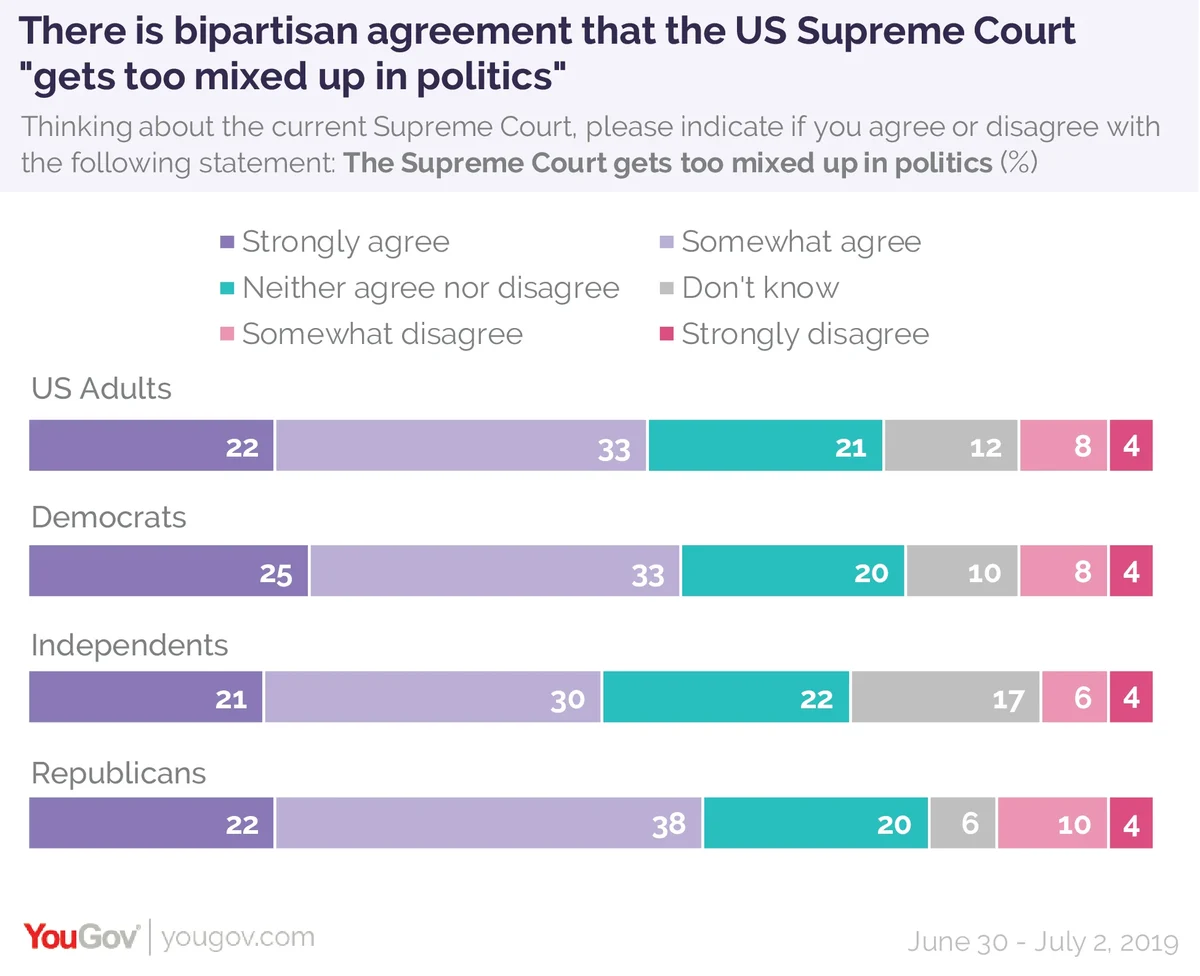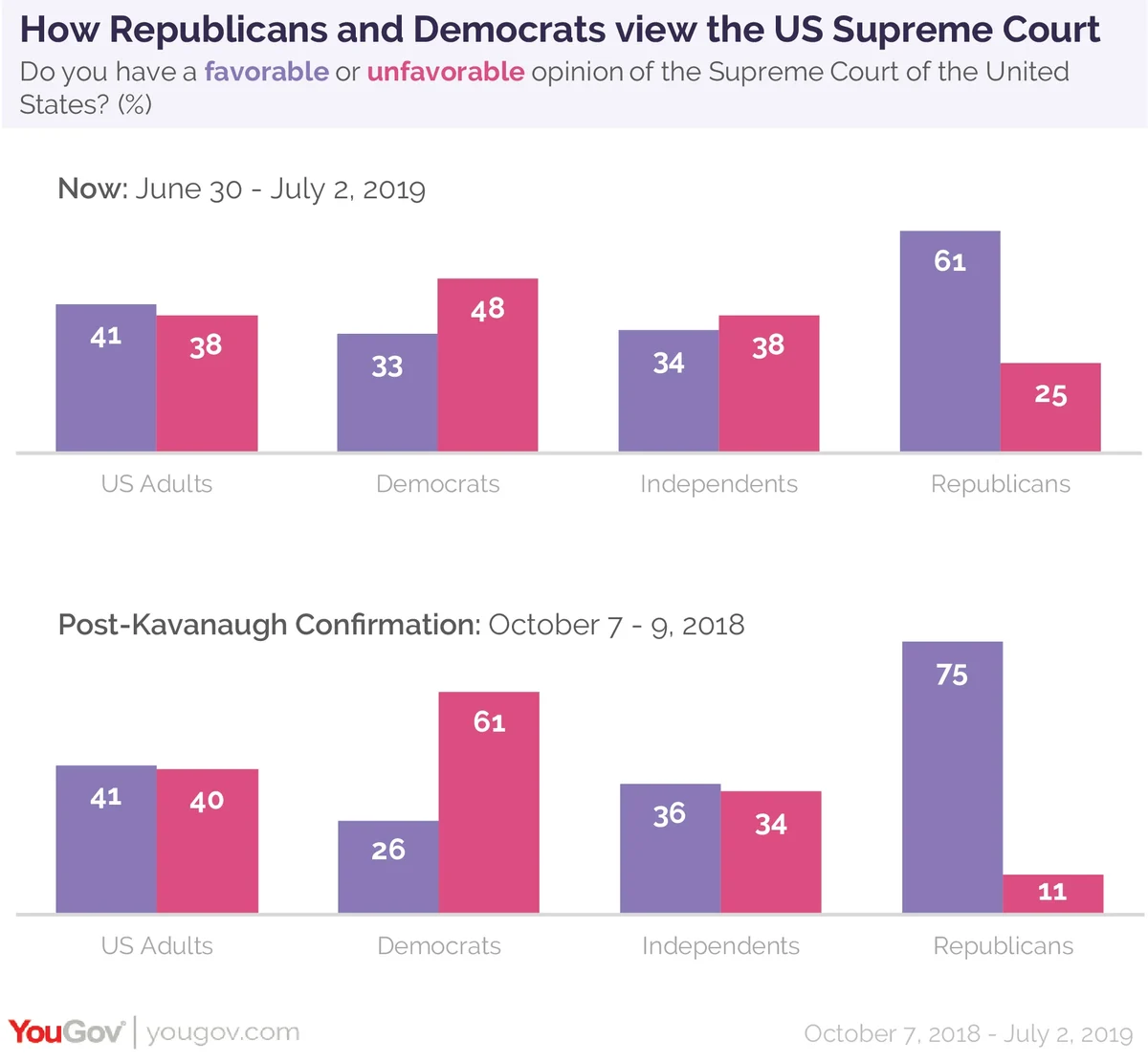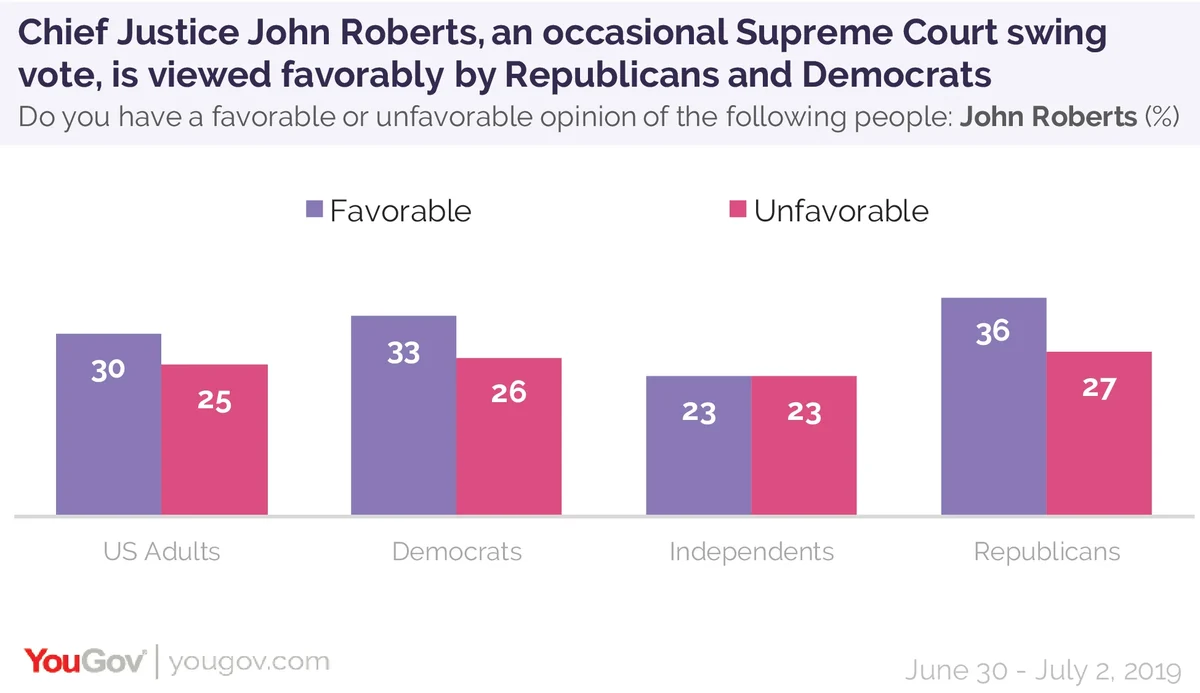The Supreme Court’s last round of decisions during this term have left Americans with the distinct opinion that the court is political at the core. Both Republicans and Democrats agree that the court seems political in the latest Economist/YouGov Poll.

Two-thirds agree that the Supreme Court favors some groups more than others (Democrats are more likely than Republicans to think this, and partisans must certainly view the court as favoring different types of groups), but there is not much difference between the parties when it comes to believing the court is mixed up in politics.
In the term that has just ended, the Court made several decisions that had political ramifications, and some were decided by a five to four vote, the narrowest possible judgment. Those two decisions, announced in the last week of the term, rejected any role for the federal courts in cases of partisan gerrymandering and rejected (for now) the addition of a citizenship question on the 2020 US Census, could help one party at the expense of the other.
The court this term also allowed a memorial cross to remain on public property, ordered a retrial for a black man sentenced to death based on racially discriminatory peremptory challenges made by the prosecution, ruled that the GOP-controlled Virginia General Assembly could not litigate a finding that 11 state assembly districts were gerrymandered based on race, and ruled on the disposition of fetal remains by abortion providers while at the same time invalidating a different part of the same Indiana law that would have outlawed certain abortions.
Despite their willingness to assign partisan interpretations to the court’s behavior, Americans have become a little less partisan in their personal assessments of the court than they were after the polarized confirmation of the newest justice, Brett Kavanaugh. After his confirmation, Republicans shifted in a positive direction and Democrats in a negative one in their evaluations. Now, both parties have softened their reaction to the court. Democrats, however, remain unfavorable, and Republicans favorable.

As for Kavanaugh himself, he evokes extremely partisan reactions. Republicans view him positively 63% to 13%, while Democrats are negative, 64% to 14%. Other justices get similar party-influenced evaluations. For example, 69% of Democrats view Ruth Bader Ginsberg favorably; 59% of Republicans have a positive assessment of Clarence Thomas. Chief Justice John Roberts, who recently has become an occasional swing vote, is an exception. He is viewed favorably by both Democrats and Republicans.

That has not always been the case. In fact, at one point after his decision upholding President Barack Obama’s Affordable Care Act, the George W. Bush-appointee was viewed negatively by Republicans, while Democrats were more favorable.
See the full toplines and tables results from this week’s Economist/YouGov Poll.
Image: Getty








